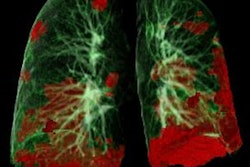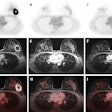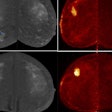
A compact 3D color digital x-ray scanner developed by a New Zealand radiologist and his father is entering global clinical trials, according to a statement released by the University of Otago in Dunedin.
Prof. Anthony Butler, PhD, and his father, Phil Butler, PhD, began developing the MARS scanner more than 10 years ago using technology adapted from the European Organization for Nuclear Research (CERN). The device produces high-resolution 3D, color images of the hand and wrist with details of a CT but with tissue health and composition data usually only available with MRI and PET scans, the university said.
Clinical trials for the scanner will begin in 2021 in Christchurch and Lausanne University Hospital in Switzerland, the university said. The trials will be managed by MARS Bioimaging -- the company founded to bring the MARS scanner to market -- and the University of Canterbury in Christchurch and will include up to 150 patients.
 Butler with his MARS wrist scanner. Image courtesy of the University of Otago.
Butler with his MARS wrist scanner. Image courtesy of the University of Otago.Preclinical versions of the device are already in research use, Butler said in a statement released by the university. And the device performed well in a 2019 pilot study with orthopedic patients.
"Pending regulatory approvals, the wrist scanners could be available for clinical use within the next year," he said.





